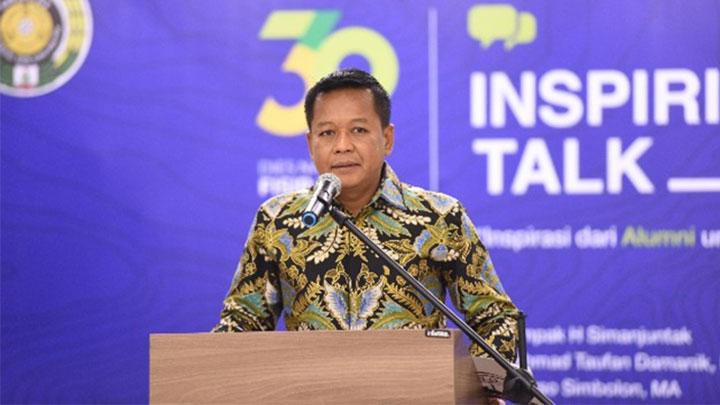
TEMPO.CO, Jakarta - The government's decision to go ahead with the appointment of a problematic university rector sends the wrong message to the public. The quality of research is at stake.
A NUMBER of cases of plagiarism by senior academic staff recently have shown that there is something fundamentally wrong with the management system of campuses in Indonesia. If this is allowed to continue, the academic quality and intellectual honesty of graduates in this nation could continue to decline. It is not only the quality of university graduates that is at stake, but also the credibility of the research produced by our universities.
The appointment of Muryanto Amin as rector of North Sumatra University (USU) is a real example of a mistake by the government. By insisting on appointing the dean of the Faculty of Social and Political Science, the Ministry of Education and Culture is clearly ignoring the ruling by the USU Council of Lecturers that declared Muryanto guilty of violations of academic ethics.
The violation itself occurred when Muryanto submitted a paper titled The Relationship between Youth Organization Networks in the Election of the Governor of North Sumatra to three English language academic journals from 2017 to 2018. He did not state that his research had been published in full in a local journal three years previously.
Plagiarism - the copying in part or in the whole of other writing without mentioning the original source - no matter whether it is of the work of others or the writer him or herself, is an academic misdemeanor. The excuse offered by the Ministry of Education and Culture Director-General of Higher Education Nizam, that Muryanto did nothing wrong because self-plagiarism is not specifically banned, is surprising. Even an open access system - such as Creative Commons pioneered by Professor Lawrence Lessig of Harvard University - requires that the writer openly state whether his or her article has previously been published.
What is worrying is that the Muryanto case is not the first time that plagiarism has been allowed to go unpunished. Semarang State University Rector Fathur Rokhman is still in his post despite being found guilty of including writing by his students in his doctoral dissertation at Gadjah Mada University, Yogyakarta. Unfortunately, the decision by the University Honor Council did not lead to the revoking of Fathur's doctoral degree.
Three years ago, the Ministry of Education insisted on appointing Muhammad Zamrun Firihu as rector of Halu Oleo University in Kendari, Southeast Sulawesi, despite the fact that the Academic Council of the campus had also stated that he was guilty of plagiarism. Like a fish that rots from the head, tolerating this plagiarism of academic works will also lead to a decline in the quality of higher education.
These plagiarism cases are really only the tip of the iceberg. The root of the problem is the excessive pressure on the quantity of articles published in journals and the number of citations as preconditions for allowances and promotions in higher education. This rule pushes academics to lie and to make use of predatory journals. Incentives should be awarded based on the quality of work and usefulness of research, not simply on the number of articles published in journals and the number of citations. As well as this, the system of choosing senior staff in campuses, in which the government has too much of a role, also provides an opportunity for prospective rectors who are good at currying favor with people in power. Personal competence and academic integrity are no longer the main considerations in determining senior academic appointments.
It is time to put things right. The Ministry of Education must work with scientific associations to improve the way research is assessed. Professional peer review must be the deciding factor, not simply publications and citations in dubious journals.
Associations of experts in each scientific field could also play a larger role in eradicating predatory journals. There must be an end to journals prepared to print any articles no matter what the quality as long as the submitter is prepared to pay. There also needs to be a consistent system of disincentives. If somebody is proved to have plagiarized the work of another person or does not routinely write up their research, academic degrees and positions, and even professors' status, could be revoked.
Without fundamental corrections, higher education will never become a center of excellence and a source of scientific knowledge. The role of campuses as the centers of reference and institutions for the drawing up of public policy will also fade away. Minister of Education Nadiem Makarim must immediately right these wrongs. There must be no more tolerance, yet alone total lack of concern.
Read the Complete Story in Tempo English Magazine























